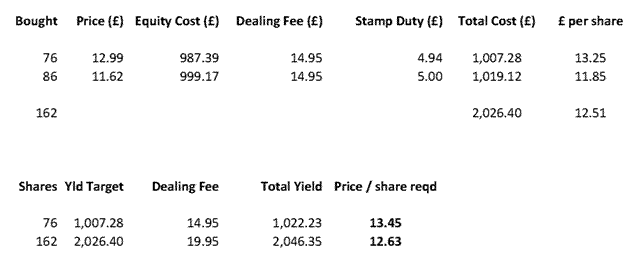The end of another tax year is steaming towards us with the 2009/2010 tax year ending on 5th April 2010.
Here’s a quick rundown of the main areas for consideration – hopefully this list may jog your memory or form the basis for you to have a meaningful conversation with your financial adviser, solicitor or accountant!
ISA’s
Under current rules, over 50’s can invest up to £10,200 in a Stocks and Shares ISA before 5th April 2010. Of this £10,200, up to £5,100 can be invested in a Cash ISA.
Under 50’s are currently limited to £7,200 in a Stocks and Shares ISA, of which up to £3,600 can be placed in a Cash ISA.
More articles on ISA’s
Pensions – Retiring Early
The minimum age for taking benefits from a personal pension plan (PPP) increases to 55 from 6th April 2010. Until then it is possible to take your personal pension plan from age 50. So if you’re in that window of people who are aged over 50 but under 54 before the end of the tax year and you wish to take your pension benefits early you need to talk to your financial adviser or pension provider pretty smartish!!
I wrote a more in depth article on this topic here – change in retirement age from 50 to 55 for pensions.
Pension Contributions
Generally everyone can contribute up to 100% of salary/income to a personal pension plan, or up to £3,600 gross if your a non-earner (housewife/husband, children etc…).
Pension plans are available for anyone under the age of 75. Pensions have a number of tax benefits. You generally receive tax relief on the money you invest – and this is provided at basic rate up front e.g. invest £80 and you actually have £100 credited to your pension plan. Non-taxpayers also get this tax relief – money for nothing from the Inland Revenue – surely this can’t be true!!
Pension funds grow in a tax-efficient manner and, under current rules, you can take 25% of the fund as a tax-free lump sum at retirement (ages 55 to 75 from 6th April 2010) with the remainder of the fund used to provide an income, in one form or other, for the remainder of your retirement. This income from your pension is generally taxed as income.
A pension plan is a long-term commitment so seek independent financial advice before investing.
Pension Contributions, Investment Bonds and Higher Rate Taxpayers
Also, if you’ve made a chargeable gain on disposal of an investment bond and you are a higher rate taxpayer it may be able to offset the additional 20% tax liability by making a contribution to a personal pension plan – the contribution has the effect of extending the basic rate tax bracket and therefore, through careful planning, if may be possible to avoid paying this additional tax on surrender after carrying out a “top slicing” calculation.
See a technically-competent financial adviser!
Capital Gains Tax (CGT)
Each person has a capital gains tax allowance (£10,100 for the current tax year) which means you can make gains on the sale or disposal of certain taxable assets of up to £10,100 before 5th April and pay no tax. Any gain over and above this are currently taxed at 18% – although this could change.
I normally think of the CGT allowance as the “unused allowance” as many people are not aware it is there but it can be a useful tool for planning your tax affairs if you have such investments as shares held directly in a limited company, etc.
Naturally you should consult a tax expert before making any disposals to ensure that the allowance can be used properly – phone your accountant as soon as possible!
Bed and ISA – using your CGT allowance wisely
This CGT allowance lends itself ideally for anyone holding unit trusts as it generally allows a person to surrender unit trust and reinvest in an ISA tax wrapper before the end of the year without any tax to pay now, or on any future gains under the ISA wrapper.
Make Tax-Free Gifts to Reduce Inheritance Tax
This subject is generally beyond the scope of this article (I am trying to get this article published as soon as possible as I have been away on holiday!). HMRC (The Inland Revenue) have detailed information on allowances, reliefs and gifts to reduce your IHT liability here.
Transfer of Income Producing Assets
Both husband and wife have their own personal allowances for income tax and often it is the case that one or other partner has all the income-producing assets in their own name. The HMRC website gives details of personal income tax allowances for the 2009/2010 tax year – moving funds between husband and wife can sometimes reduce your tax burden.
Finally…….Tax Year End falls on a Bank Holiday – act soon and avoid disappointment!
Don’t forget – 5th April 2010 this year falls on Easter Monday – so with Friday 2nd April being Good Friday (both days being Bank Holidays remember!) it would be prudent to ensure all planning, ISA’s etc are completed well in advance of say 1st April!!!! Don’t leave it too late!
Remember, this site doesn’t give financial adviser – make sure your consult a suitably qualified independent financial adviser or accountant before taking any end of tax year financial planning actions which you are not sure about.
